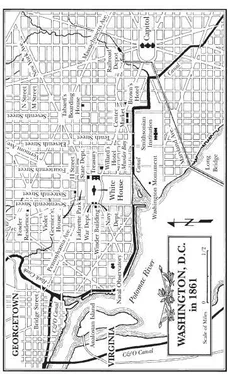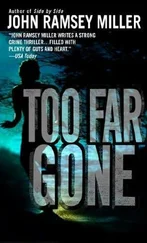John Miller - The First Assassin
Здесь есть возможность читать онлайн «John Miller - The First Assassin» весь текст электронной книги совершенно бесплатно (целиком полную версию без сокращений). В некоторых случаях можно слушать аудио, скачать через торрент в формате fb2 и присутствует краткое содержание. Жанр: Исторический детектив, на английском языке. Описание произведения, (предисловие) а так же отзывы посетителей доступны на портале библиотеки ЛибКат.
- Название:The First Assassin
- Автор:
- Жанр:
- Год:неизвестен
- ISBN:нет данных
- Рейтинг книги:3 / 5. Голосов: 1
-
Избранное:Добавить в избранное
- Отзывы:
-
Ваша оценка:
- 60
- 1
- 2
- 3
- 4
- 5
The First Assassin: краткое содержание, описание и аннотация
Предлагаем к чтению аннотацию, описание, краткое содержание или предисловие (зависит от того, что написал сам автор книги «The First Assassin»). Если вы не нашли необходимую информацию о книге — напишите в комментариях, мы постараемся отыскать её.
The First Assassin — читать онлайн бесплатно полную книгу (весь текст) целиком
Ниже представлен текст книги, разбитый по страницам. Система сохранения места последней прочитанной страницы, позволяет с удобством читать онлайн бесплатно книгу «The First Assassin», без необходимости каждый раз заново искать на чём Вы остановились. Поставьте закладку, и сможете в любой момент перейти на страницу, на которой закончили чтение.
Интервал:
Закладка:
“It’s odd how the Treasury stands where it does,” said Clark. “It blocks the view between the White House and the Capitol.”
“The city’s designers originally had planned an unobstructed view,” said Rook. “But twenty years ago, Andrew Jackson insisted on the construction of the big building right where it is. And so it went up.”
Davis and Stephens were back in sight, moving north on Fifteenth. They crossed F street and then G street. They turned left, rounding the State Department and heading for Lafayette Park. They cut through it diagonally, right beneath the statue of Jackson. At the northwest corner of the park, they paused for the first time since leaving the Capitol. They seemed indecisive. Davis pointed one way, Stephens another.
Suddenly, they began walking on east on H Street, along the northern edge of the park. They stopped at the intersection of H Street and Sixteenth Street. Again, they paused. Stephens appeared to want to go back in the direction from which they had just come. Davis, however, pointed to a building on the north side of the street. He crossed H Street and Stephens followed. They marched up the steps and knocked on the front door. A moment later it opened and they entered.
Rook could not see who let them in. The building was a private residence. He did not recognize it. He ordered Clark to stay put and walked to the corner of H and Sixteenth streets for a better look. It stood three stories tall, with a facing of red brick, a black door, and a series of dark windows. Nothing about it was especially distinctive. To Rook, who did not appreciate the finer points of architecture, it was just another fine home in the best section of the city. He did not want to pass right in front of it, for fear of someone noticing him, but he approached close enough to check the home’s address.
Rook walked back to Clark, who was not alone-Springfield was with him. The sergeant had been carrying out his orders of keeping a watch on the area and its inhabitants.
“Do you know who lives in the building they entered?” asked Rook.
Springfield squinted in the direction of Sixteenth Street. “Exactly which one did they go into?”
“The address is 398 Sixteenth Street.”
Springfield nodded. “I suppose that’s not much of a surprise,” he said.
“Why not?”
“That’s the home of Violet Grenier.”
Mazorca had seen impressive mansions before, and the White House was not one of them. Compared to several that he knew, it was a modest country house-a big box of a building whose plain shape was broken only by a columned portico jutting from the structure’s north side. After a moment, Mazorca realized it had the architectural effect of making the two-story house appear much smaller than it really was. The president’s home may not have looked magnificent, but it certainly was large.
People often stopped and stared at the White House. Mazorca, however, did not want to attract any special attention. He began a slow, clockwise walk around a circular gravel driveway that swooped by the portico, where he saw visitors coming and going as they pleased. There were a couple of soldiers by the front door, beneath the overhang. They stood against the wall like sculpted bas-reliefs and did not move to prevent a single person from entering. Mazorca wondered what they thought they were guarding, because he could not tell.
For a moment he considered going into the building. It would have been easy. He had read that the building was more or less open to the public. The cheap guidebooks to Washington that he had been reading sometimes described the custom as a testament to the strength of American democracy. Whatever it was, Mazorca thought it was a weakness.
Maybe he could just walk in right now. Then he reminded himself that the purpose of this visit was simply to have an initial look at the White House exterior. He counted the windows: there were eleven facing north on the second story, all in plain sight except for one on the left, which was obscured by a tree. Smaller trees covered the view of most of the windows on the first floor. A decorative iron fence stood between the driveway and the house, with an open gate in front of the portico. The black fence was so short that any able-bodied person might have hopped over it without much trouble. It seemed even less useful than the guards.
Small sheds flanked the White House. A conservatory was on the right. A bronze statue of Thomas Jefferson, with his right hand placed over his heart, stood before the mansion in the middle of the driveway. Bright flowers surrounded the granite pedestal block. They were freshly planted, judging from the overturned soil.
A soldier approached from Pennsylvania Avenue. He was a private. The man was about to pass Mazorca when they both heard a loud commotion coming from the portico. Dozens of men poured out the front door. They were a rowdy bunch, whooping and boasting and knocking each other around. Mazorca stepped onto the grass to let them go by. The soldier did the same.
There must have been a hundred of them. Many had pistols stuffed in their belts. Others had big knives. When they reached Pennsylvania Avenue, they turned right, turned right again on Fifteenth Street, and eventually disappeared behind the State Department and Treasury.
As they left the White House grounds, the soldier turned to Mazorca.
“Are you one of Jim Lane’s men too?” he asked.
“Excuse me?”
“I suppose not. You don’t really look it.” The soldier pointed toward the vanishing horde. “The ‘Frontier Guards.’ At least that’s what they call themselves. They’re more like a mob. They arrived yesterday from out West and spent the night here. They couldn’t have been more out of place. There are a lot of them-two or three times the number that just passed by. They say they’re here to protect President Lincoln.”
The bluecoat apparently was a talker. “And they’re all in the White House?” asked Mazorca.
“They’ve turned the place into a bivouac. I’ve never seen such a rabble. But the truth is we need every man we can get these days. We’re short of soldiers all over the city, and those fellows look ready to fight.”
“At least the president is safe.”
“I suppose. With the soldiers on duty here, plus Lane’s men, I think we could hold off a small group of attackers. I’m sure you’ve heard all the rumors of kidnapping plots and that sort of thing.”
“It seems as though people move in and out of the building with ease.”
“Mr. Lincoln has insisted on keeping the house open at all times. He talked to us the other day about it and said that when he was a congressman during the Polk years, the house was shut to the public. He said it created an appearance of aloofness, and he wanted no part of that.”
“Interesting.”
“I definitely see his point. But sometimes I wonder how safe he really is in there. He calls it ‘the people’s house,’ but it’s his house as well. I sure don’t want any harm to come to him.”
“I’m sure you don’t.”
“What’s your business here?”
“Just looking.”
“Have you come for a job?”
Mazorca narrowed his eyes. “You could say that,” he replied.
The soldier thought nothing of it. “That’s what most of the people who come here are doing,” he continued. “They’re asking Mr. Lincoln to give them jobs in the government.”
“I see,” said Mazorca. “Well, right now I’m just looking.”
“Good to meet you, mister,” said the soldier. He walked into the house.
Mazorca watched him go. “I’ve already got a job,” he said, to no one but himself.
When Violet Grenier heard the Irish girl marching up the stairs, she rose from her chair and smoothed her dress. The door opened, revealing a plain-looking girl in a plain-looking dress. Polly was perhaps seventeen years old, and she possessed precisely what Violet wanted in a servant: an appearance so thoroughly ordinary that none of Violet’s male visitors would notice her. If there was one thing Violet Grenier was good at, it was securing the attention of men.
Читать дальшеИнтервал:
Закладка:
Похожие книги на «The First Assassin»
Представляем Вашему вниманию похожие книги на «The First Assassin» списком для выбора. Мы отобрали схожую по названию и смыслу литературу в надежде предоставить читателям больше вариантов отыскать новые, интересные, ещё непрочитанные произведения.
Обсуждение, отзывы о книге «The First Assassin» и просто собственные мнения читателей. Оставьте ваши комментарии, напишите, что Вы думаете о произведении, его смысле или главных героях. Укажите что конкретно понравилось, а что нет, и почему Вы так считаете.












